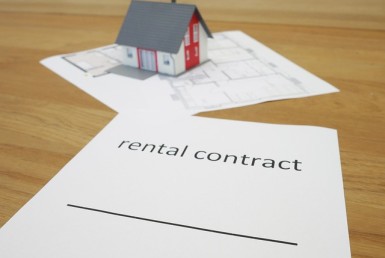What Does Budget 2026 Mean for the Dublin Property Market

As Budget 2026 hits headlines across Ireland, homeowners, buyers, and estate agents in Dublin are parsing the details to understand what it truly means for the property market. With a clear focus on boosting supply—particularly in the apartment sector—the government’s measures aim to address affordability, dereliction, and viability challenges that have long plagued the capital.
From VAT reductions to urban regeneration, here’s what Budget 2026 could mean for Dublin’s housing outlook and how estate agents may play a pivotal role in the months ahead.
What Does Budget 2026 Mean for Estate Agents in Dublin?
For Dublin estate agents, Budget 2026 opens new markets, creates more inventory, and demands in-depth knowledge of tax changes and incentives to guide clients wisely.
Estate agents must now understand and communicate complex incentives—from VAT reductions and Living City grants to cost-rental exemptions. Those who can guide developers, buyers, and sellers through the post-budget landscape will provide real value.
Whether working with buyers eyeing Help to Buy, developers seeking stamp duty relief, or landlords navigating rental credits, estate agents are uniquely positioned to be strategic partners in a rapidly shifting market.
How Will Budget 2026 Boost Apartment Construction in Dublin?
Budget 2026 introduces a reduced 9% VAT rate for new apartment developments and an enhanced 125% corporation tax deduction for construction costs—aiming to stimulate much-needed supply in the capital.
One of the most headline-grabbing announcements is the reduction in VAT on new apartments to 9%. This directly improves economic viability for developers, particularly in Dublin where construction and land costs are high. It’s expected to kick-start apartment construction that has stalled in recent years.
An enhanced corporation tax deduction—now allowing up to 125% of qualifying costs for apartment construction—adds further incentive. For estate agents working in city areas, this could mean a tangible increase in new-build listings over the next 12–24 months.
Combined with increased capital funding for starter homes and social housing, the outlook for new housing units in Dublin is more optimistic than it has been in years. Developers now have fewer financial barriers, and buyers may finally see more choice in key commuter zones and city locations.
How Will Urban Regeneration and Dereliction Be Addressed?
The introduction of a Derelict Property Tax and expanded Living City Initiative are Budget 2026 tools aimed at revitalising neglected areas—opening new sales and rental opportunities for estate agents in Dublin.
The new Derelict Property Tax targets long-vacant buildings and idle plots with the goal of encouraging redevelopment. For Dublin’s inner city, where dereliction remains visible, this measure could accelerate much-needed revitalisation.
Estate agents will benefit from expanded stock and new opportunities in heritage property sales. The Living City Initiative, extended to 2030, now includes more properties and areas—making older city buildings more financially attractive to renovate and sell.
Urban regeneration funding and infrastructure support are also being expanded, meaning areas previously off the radar for buyers could become desirable with the right vision and planning.
What Support Is Available for Builders and Developers?
Budget 2026 supports developers through extended stamp duty refunds, tax exemptions for cost-rental housing, and new capital for small builders—boosting supply across Dublin.
The extension of the Residential Development Stamp Duty Refund Scheme to 2030 will support large-scale developers, particularly those working on multi-unit schemes in suburban areas.
Small builders—who play a crucial role in localised infill and rural housing—will benefit from increased funding to the Housing and Building Finance Company (HBFI). This could result in more new homes across Dublin and commuter towns.
Cost-rental providers also received a boost: the confirmation of corporation tax exemptions. These build-to-rent schemes offer long-term affordable housing and present a new market for estate agents involved in tenant placement and property management.
How Will Landowners and Zoning Be Affected?
Landowners can now access exemptions from the Residential Zoned Land Tax (RZLT) if they rezone land based on active economic use—a shift that may free up land for development.
This exemption encourages landowners to align their property use with current economic activity, particularly in Dublin’s urban fringe. It’s a subtle change but could have a significant long-term effect on land availability.
Estate agents advising clients on land sales or development potential will need to stay informed on zoning policies, tax implications, and local authority decisions. Dublin’s housing supply could increase if dormant sites become viable.
What Does Budget 2026 Offer Buyers and Renters?
Renters and first-time buyers benefit from extended tax credits and continued support through Help to Buy and Starter Homes—adding fuel to market demand.
The €1,000 (single) and €2,000 (joint) rent tax credit has been extended for three more years, giving renters meaningful relief. This measure is expected to support stability in the rental market while freeing up funds for savings or other costs.
The Help to Buy scheme remains in place and is underpinned by a €1.2 billion allocation to the Starter Homes programme. For buyers trying to get onto the property ladder, especially in Dublin, these supports may make the difference between waiting and purchasing.
Estate agents who specialise in working with first-time buyers will likely see increased activity in this segment, particularly in new housing developments that qualify for reliefs.
Will House Prices Drop in Dublin in 2026?
While prices may stabilise with new supply, a significant drop is unlikely. Dublin’s market remains competitive due to demand, limited existing stock, and planning constraints.
According to the CSO, house prices in Dublin have levelled slightly in recent months but remain among the highest nationally. Although Budget 2026 promotes new building, it takes time for units to reach the market.
Estate agents expect steady rather than falling prices—particularly in prime areas. However, more options could reduce bidding wars and create a healthier market for buyers.
Looking to make sense of Budget 2026 for your property goals?
Contact Howley Souhan, your expert estate agents in Dublin and Naas, for clear advice and property services that move with the times.
Royalty free Image from PixaBay to support content Developed by 3R .




